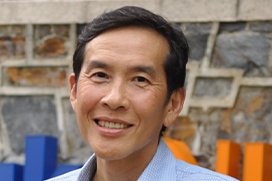This article was originally published on 29 September 2020 and updated with new information.
Dr. Michael Chee is a Professor at Duke-NUS Medical School and Principal Investigator of the Cognitive Neuroscience Lab. He is a member of the Neuroscience and Behavioral Disorders Program at Duke-NUS Medical School in Singapore. He is a member of AIA's Healthier, Longer, Better Lives Advisory Board.
Many of us aspire to live life to the fullest, but realising this goal requires thoughtful planning. Staying in good health to enjoy the fruits of our labor does not occur by chance. Balance is important when making lifestyle choices, to increase the likelihood that we stay healthy. For example, while eating is essential for sustenance, over-eating results in obesity. Similarly, the many benefits of physical exercise can be eroded by overtraining and not giving our body time to recover. This programme from AIA gives you an opportunity to balance your health portfolio in a frequently neglected area — Sleep.
Modern lifestyles increasingly steal time from sleep. Unceasing targeted marketing has us constantly yearning to 'get more out of life' and causes us to feel bad if we don't. But make no mistake about it, sacrificing sleep comes at personal as well as community cost. It has been estimated that developed economies suffer a loss of 2-3% of their annual GDP as a result of insufficient sleep. In the short term, sleep loss decreases cognitive performance, makes us moody and is associated with feelings of tiredness. Longer term, we put ourselves at risk of diabetes, heart attack, stroke, early cognitive decline, dementia, some types of cancer, mental illness, accidents and lowered productivity. When parents fail to adopt good sleep habits, it is likely that their children will follow suit. When this is repeated across families, whole communities are put at risk.
Research conducted by my group and others has shown that on average, East Asians wearing sleep trackers sleep between 25-65 minutes less than their counterparts in Australia and New Zealand, across life. The differences are most prominent when comparing older adolescents and young adults, likely reflecting the influence of lifestyle differences across countries, particularly in the young. Why is this important?
Could young Asians have adapted to short sleep? In a series of quasi-laboratory studies, my group found that even highly motivated adolescents show cumulative decline in sustained attention if they have only 6.5 hours of sleep at night for 5 nights in a row. 6.5 hours of nocturnal sleep is below what is recommended (that being 8-10 hours, with 7 hours being possibly adequate). We chose 6.5 hours because that is the duration Singaporean adolescents report sleeping on weekdays. In addition, memory and mood were also impaired. It thus appears that even high performing adolescents need their sleep and that if they don't, dozing in class will likely take place.
Skeptics will point out that, in terms of life expectancy, East Asians aren't faring badly. However, this could well be that the long-term effects have not had time to fully manifest. One is reminded of the myopia epidemic in East Asia. From the 1970's to the 1990's the prevalence of myopia in young persons increased from 25% to over 80%. This is important because the earlier a person starts developing myopia, the more severe it becomes later in life. Interestingly, older persons from the same ethnic group were less likely to have myopia. Also, Asians living in Australia were less prone to the condition. Both these observations suggested that an environmental factor was at play. The heavy study culture was initially fingered, but current thinking is more nuanced, and points to reduced exposure to natural light in students living in Asia as the culprit. Several scientific trials showing the benefit of increasing daily light exposure and physical activity through outdoor play, support this idea, but it's taken over two decades and the damaged eyesight of multitudes to come to this point. Can we afford for history to repeat itself with regard to sleep, health, and wellbeing, when arguably the stakes are higher and we should know better?
It is undeniable that the prevalence of obesity and diabetes has increased dramatically in East Asia. While dietary changes and reduced physical activity play a part, the contribution of poor sleep has been insufficiently acknowledged. Experimental evidence from tightly controlled laboratory studies on sleep deprivation reveal a number of physiological changes that could, in the long run, increase the risk of diabetes. Epidemiological evidence shows a clear association between short sleep and increased risk of diabetes. Yet, an April Fool's joke was made about a programme to incentivize sleep in computer science students who pride themselves as 'modern day warriors' in staying up all night to code. It may be cool to ignore sleep but is it advantageous to do so, as many wish to believe?
Clearly not, and happily, the tide is turning. Professional athletes are recognizing the importance of sleep as a contributor to peak performance and speaking out. Burnout has been recognized by the WHO as a medical condition. Sleep is entering the conversation in homes and corporate wellness programmes. And insurance companies are recognizing that improving sleep is a strategy to embrace.
What can we do to improve our sleep? Among the many tips that are circulated in wellness magazines and blogs, only some are supported by scientific evidence. Over a series of articles, I will expand on tips you can trust, but here, I'll start with the ones that are going to have the largest effect on your life
